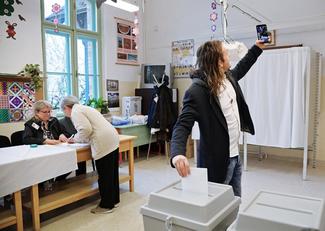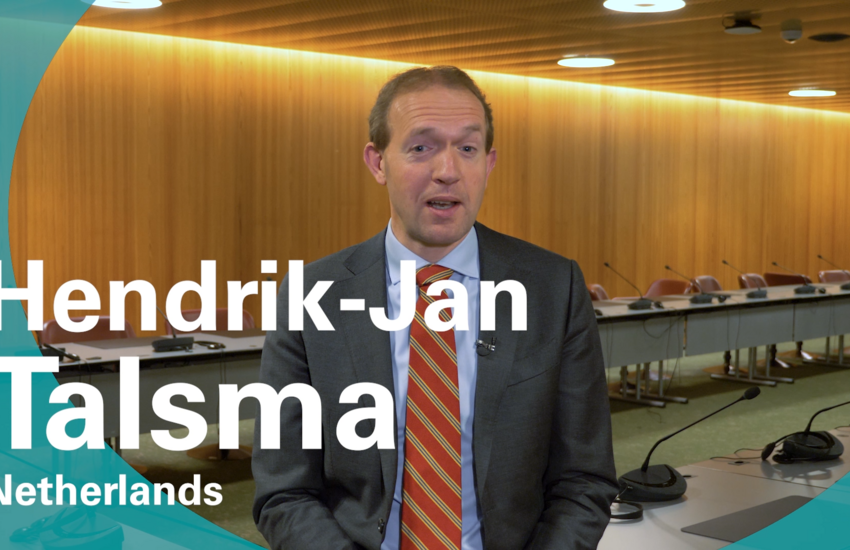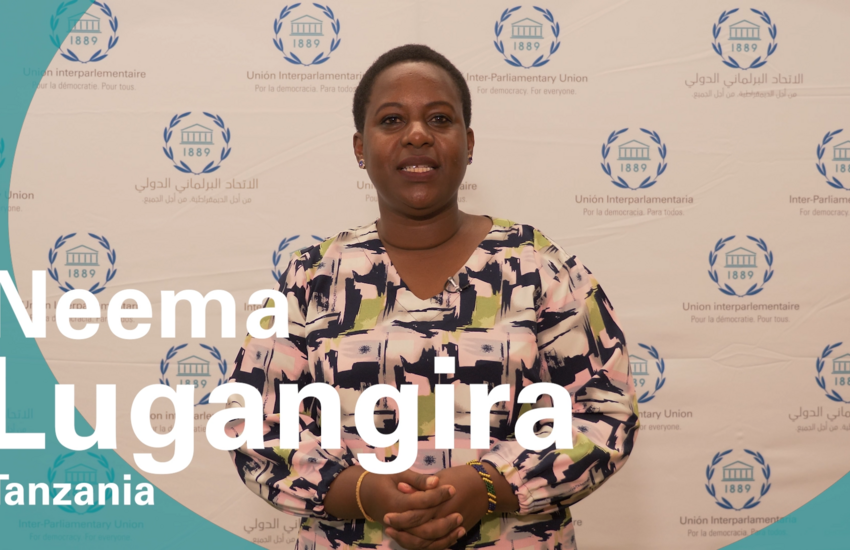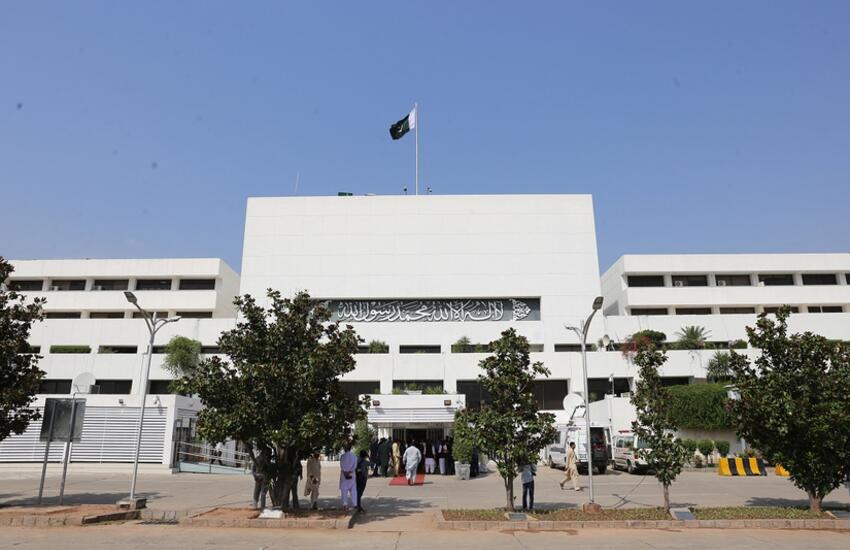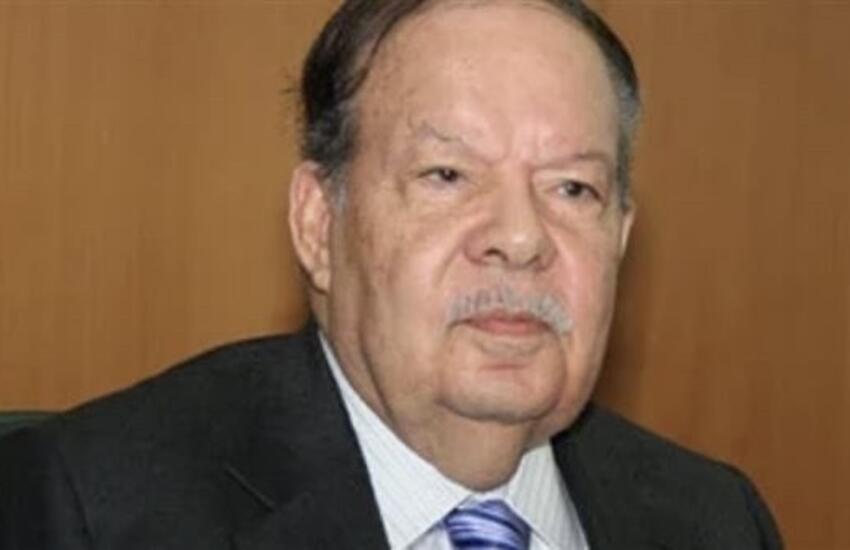Data on parliaments shows a mixed picture on 30 June, the first International Day of Parliamentarism. This date was chosen by the United Nations General Assembly in Resolution 72/278 as it coincides with the foundation of the IPU – the global organization of parliaments – in 1889.
Using its unique, worldwide vantage point, the IPU can offer a snapshot of the state of parliaments in 2018. Data shows that parliaments and democracy are generally strong but they are also facing huge challenges: the rights of a growing number of MPs are being violated; women’s participation in politics is stagnating; young people in many countries continue to be excluded from political decisions that affect their future; and people are losing trust in their political institutions.
However, there are also many success stories as parliaments critically assess themselves, adapt to new technology, and take action to better represent people, and deliver on their expectations. In an age of many problems – from climate change, mass movements of people, to the rise of populism and autocracy – the world needs parliaments more than ever as the core institution of democracy.
In an age of many problems – from climate change, mass movements of people, to the rise of populism and autocracy – the world needs parliaments more than ever as the core institution of democracy.
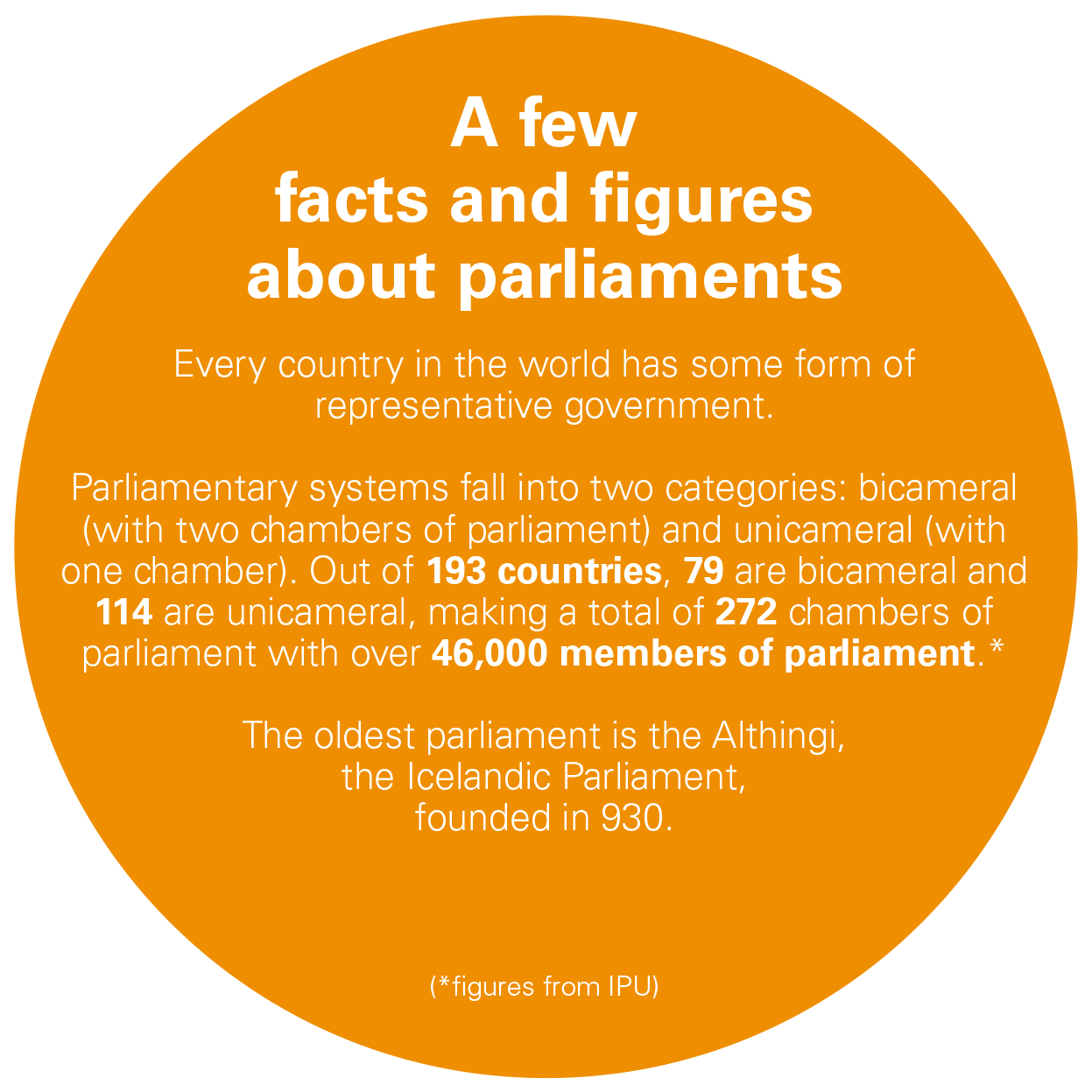
The rights of more and more MPs being violated
The IPU Committee on the Human Rights of Parliamentarians is currently examining the cases of over 550 MPs in 40 countries, one of the highest figures ever recorded. Most of the cases are from the Americas and Asia. A large majority of the cases, (75 percent) concern MPs from opposition parties. About 20 per cent of the cases concern women MPs. The most common violations include MPs being denied a fair trial, suspended from parliament or detained arbitrarily.

Women’s participation in politics stagnates
The IPU has been pushing for gender parity in politics for decades by, for example, encouraging quotas of at least 30 or 50 percent of women parliamentarians depending on starting points.
Overall, there has been progress with women’s average share of parliamentary membership increasing from 17 per cent in 2007 to just over 23 per cent today. The group of top 10 countries with the highest number of women MPs has also become more diverse in the last 10 years: the top 10, dominated by European countries in 1998, now also includes sub-Saharan Africa and the Americas.
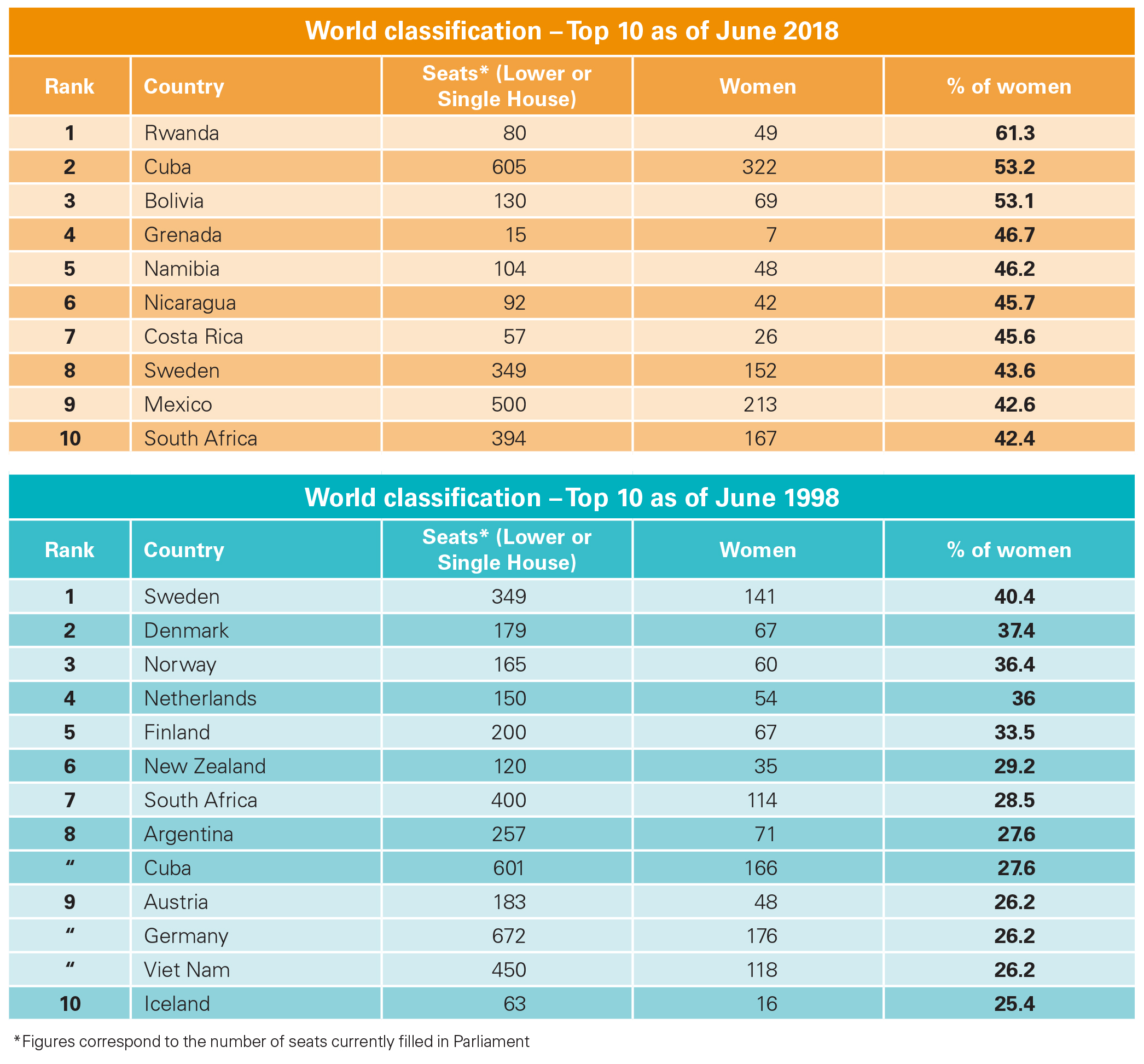
- For the second year in a row, the percentage of women in parliaments has barely budged, at 23.4 percent in 2017 compared to 23.3
- in 2016. Before 2016, annual progress was 0.6 percent while in 2017 it dropped to 0.1 percent.
- The percentage of women Heads of State stands at 7.2 in 2017: a slight increase on 6.6 percent in 2015.
- However, the number of women heads of government has gone down from 7.3 percent in 2015 to 5.7 percent in 2017.
- A 2016 IPU study[1] found that 82% of women parliamentarians had experienced some kind of psychological violence.
Parliaments, often with IPU support, are rising to the challenge. Women’s parliamentary caucuses are proving to be useful mechanisms to consult women and channel their needs into the work of parliaments. The support provided by the IPU to women’s parliamentary caucuses is beginning to generate tangible results. For example, in 2017, IPU support allowed Mauritania’s caucus of women MPs to travel around the country to consult with women and girls, particularly in rural areas. Following the consultations, MPs of both genders were able to bring and address the socio-economic needs of rural women and girls in the parliament.
Young people continue to be excluded from political decisions that affect their future
Young people also remain vastly under-represented in political decision-making.
- Although 51 percent of the world’s population is under 30, young people under 30 account for less than 2 per cent of the world’s MPs.
- Nearly one third of the world’s single or lower houses of parliament have no MPs aged under 30.
- Young women are the least represented of all on account of being women and because they are young.
- Youth political apathy is also a concern. Young people aged 25 and under are much less likely to turn out to vote than those who are 26 and above. Recent research by the International Institute for Democracy and Electoral Assistance on voter turnout shows that 33 percent of eligible voters under 25 have never voted.
However, some countries are taking concrete steps to engage more with youth. For example, in a historic step in May this year, Nigerian President Muhammadu Buhari signed into law the Not Too Young to Run bills that lower the ages of eligibility for people to run for office and hold government positions.
The sponsor of one of the bills was a young parliamentarian himself. Raphael Igbokwe is the President of the Nigerian Forum of Young MPs and a former member of the IPU’s Forum of Young Parliamentarians.
People’s trust in political institutions is declining...
The public’s trust in political institutions – including parliaments – has been undermined in recent decades by prominent scandals, allegations of corruption, and other breaches of acceptable behaviour by elected officials across the world.
- The Economist Intelligence Unit Democracy Index 2016 found that between 2006 and 2016 democracy has stagnated or regressed. Almost half of the 176 countries covered by the Democracy Index registered an overall decline.
More information available in the IPU’s 2017 Global Parliamentary Report, published jointly with the United Nations Development Programme.
...but parliaments are taking action
In the last 10 years, requests for the IPU’s technical assistance have doubled as more and more parliaments ask for help to face these challenges. Based on more than four decades of experience on parliamentary development, the Common Principles for Support to Parliament, designed by the IPU together with partners, offer guidelines for those receiving or providing support to parliaments. The guidelines are designed to improve the quality of the support and to encourage the parliamentary community to work together more effectively.
A total of 122 parliaments and partner organizations have endorsed the Common Principles to date.
Statements
Antonio Guterres, Secretary-General of the United Nations, said “As a former parliamentarian, I have felt, firsthand, the responsibility of representing people and trying to advance their aspirations. Through laws and spending decisions, parliaments can contribute significantly to achieving the Sustainable Development Goals – our blueprint for peaceful, resilient societies on a healthy planet. As we mark this new International Day, I express my support for members of parliaments worldwide, as they strive to deliver for the people they serve.” Watch his video message here.
Gabriela Cuevas, IPU President and Mexican Senator, said “An international day of Parliamentarism makes sense at a time when we need to defend democracy, to speak up for freedom and when, more than ever, we need to protect human rights. Our solidarity goes to the people and the parliaments who represent them. This is your day.” Watch her video statement here.
Martin Chungong, IPU Secretary General, said “The IPU works hard every day to help strengthen parliaments as the core institutions of democracy. I wish to extend my encouragement to all parliaments in the world as we celebrate International Day of Parliamentarism. We look forward to working more with you to help improve the lives of the billions of people that you represent.” Watch his video statement here.
Konstantin Kosachev, Russian parliamentarian and Vice-President of the IPU Executive Committee, said “The world today has three types of countries: those with strong democratic systems where parliaments play an essential role; those with developing democratic systems where parliaments are beginning to play a significant role; and lastly countries with no parliamentary democracy. We need international cooperation to understand why parliamentary democracy is more efficient than any other system. This is why we need an international parliamentary day.” Watch his video here.
[1] In October, the IPU will publish a new, more extensive, study entitled “Regional research on sexism, harassment and violence against women in parliaments in Europe” in partnership with the Parliamentary Assembly of the Council of Europe.





